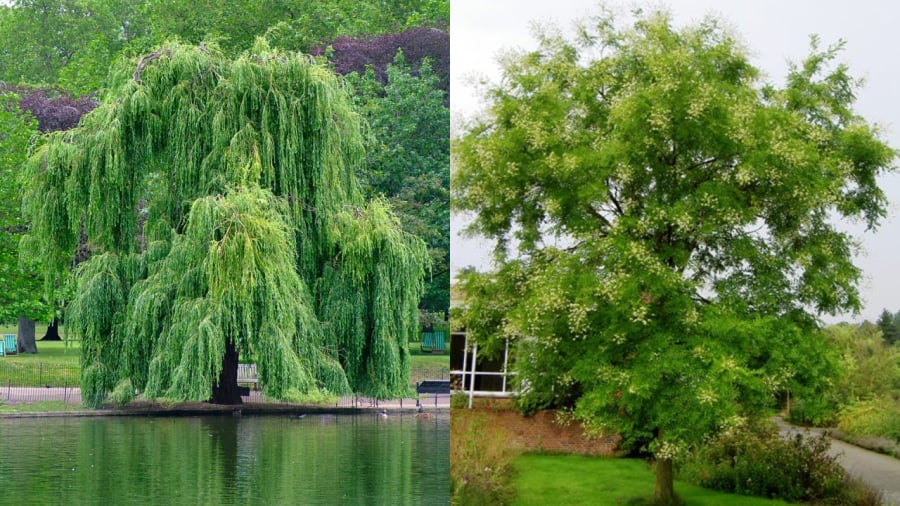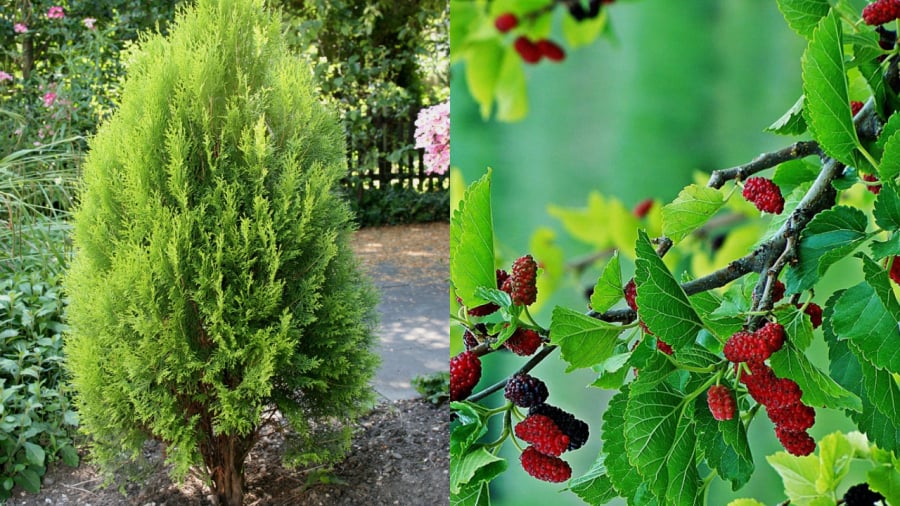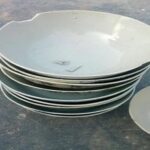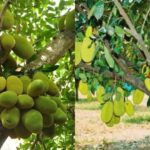Bringing nature indoors has become an integral part of home decor, and it’s not just about aesthetics. Indoor plants offer a myriad of benefits, from air purification to enhancing the overall ambiance and even bringing good fortune, according to ancient beliefs. However, it is essential to choose the right plants as some are believed to have negative associations and can impact the energy and luck of a household.
Weeping Willow
The Weeping Willow is often associated with sadness and separation in ancient literature. Its delicate branches, drooping leaves, and swaying motion in the wind can evoke a sense of melancholy and loneliness. Additionally, the fact that the tree doesn’t produce seeds has led to connotations of a lack of offspring and continuity of the family line.
In Chinese, the word for willow (“liǔ”) sounds similar to the word for separation (“lí”). As a result, it is believed that planting a willow tree can lead to separations and impact the family’s luck and energy flow.
From a practical standpoint, willow trees have an extensive root system that can invade plumbing and impact the structural integrity of walls and foundations, posing potential safety hazards.

The Weeping Willow (left) and the Pagoda Tree are considered yin trees and are not recommended for indoor planting.
Pagoda Tree
The Pagoda Tree, with its large canopy and dense shade, is believed to block positive energy and sunlight, creating an imbalance in the home’s energy field, leading to an increase in negative energy.
Chinese Fir
The Chinese Fir, known for its impressive height and wide canopy, symbolizes strength, perseverance, longevity, and prosperity. However, due to its common presence in cemeteries, it has become associated with death and is considered a source of negative energy. Over time, the belief arose that the Chinese Fir was unsuitable for indoor planting because of its connection to graveyards.
While the Chinese Fir is resilient and resistant to pests and diseases, its association with cemeteries has led some to be cautious about planting it indoors.

According to Feng Shui, planting Chinese Fir and Mulberry Trees indoors can impact wealth and luck.
Mulberry Tree
In Feng Shui, the Mulberry Tree is believed to possess negative energy. The Chinese pronunciation of “Mulberry” sounds similar to the word for “sorrow” or “funeral,” leading to associations with misfortune and bad luck. The dense branches and leaves of the Mulberry Tree create a somber atmosphere, further reinforcing its connection to negative energy.
As a result, many people avoid planting Mulberry Trees in their yards, fearing they may invite misfortune and bad luck.
Information provided is for reference only and is subject to individual interpretation.
The 4 No-Go Spots to Keep Your Broom in to Ensure Wealth: Sweep Away Bad Luck and Welcome Prosperity
The humble household broom is more than just a cleaning tool; its placement is of utmost importance in the practice of Feng Shui. Superstition dictates that there are certain areas in the home where one must never keep a broom, as doing so could bring about detrimental effects on the homeowner’s fortune and overall well-being.



































